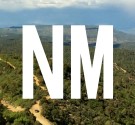
|
||||||||||||||||||
|
|
||||||||||||||||||
|
| ||||||||||||||||||
           

        | ||||||||||||||||||
BFRO's Pacific Northwest Newsletter
Always Be Prepared!!
by Jeffrey Lemley
|
Many bigfoot investigators have described being in the right place at the right time, and not having their cameras or recorders at the ready. Examples come to mind, such as the Six Rivers Expedition in Northern California, when Dr. Greenwell's team heard a long, loud, unidentifyable vocalization while sitting around camp. Unfortunately, they hadn't gotten around to unpacking their digital audio recording equipment yet. Or, when a researcher on Mission Night Scream got out of his vehicle, and was busy playing with his camcorder when something let out a "very loud howl" from a steep hillside within 200 yards of his location. I have tried to learn from these experiences myself. Whenever I am in the field, I always keep my audio recording equipment set up. I usually have my tape recorder set to record, with the PAUSE button engaged, and placed in the passenger seat next to me in my vehicle. I then have the external microphone mounted on the exterior of my truck, with the mic cord running in through the passenger window to the recorder. When I arrive at a location that I want to check out, I disengage the PAUSE feature as soon as I shut off the car engine, and leave it running until I leave the spot. Also, whenever I am camping, I employ the same methods, up until the point that I retire for the night. At this point, I engage the PAUSE feature, and go to sleep, in hopes that if I hear something, I will be able to hit the button and catch it on tape. This does present the possibility that you will miss recording whatever wakes you up, as only one vocalization may occur. But, you may also catch responses to the vocalization, or simply repeated vocalizations. These procautions apply to all types of electronic equipment. Each investigator and volunteer must be properly prepared at all times, with every piece of equipment they have with them. Always make sure that you are carrying at least 2 sets of extra batteries for each electronic device. Always carry extra cassettes for your camcorders and tape recorders, and extra film for your camera. One approach is to put fresh batteries and cassettes into camcorders and audio recorders, and leave them running all night at a campsite. No matter
how well prepared you are, there will always be down time, either
replacing batteries or changing tapes or film. These moments present
the possibility of missing something good. I
missed something good that way. I was driving northeast of Mt. St.
Helens, and had to pull off the road for a pit stop. It was 6:30
PM, on a beautiful summer day without a cloud in the sky. Although
I was out scouting for possible active areas, sasquatch was the
last thing on my mind at this particular moment. You need to develop and practice your own system to keep your recording gear ready at all times. If you practice your system enough before you are in the field, when you do get in the right place at the right time, your tapes will already be rolling.
|